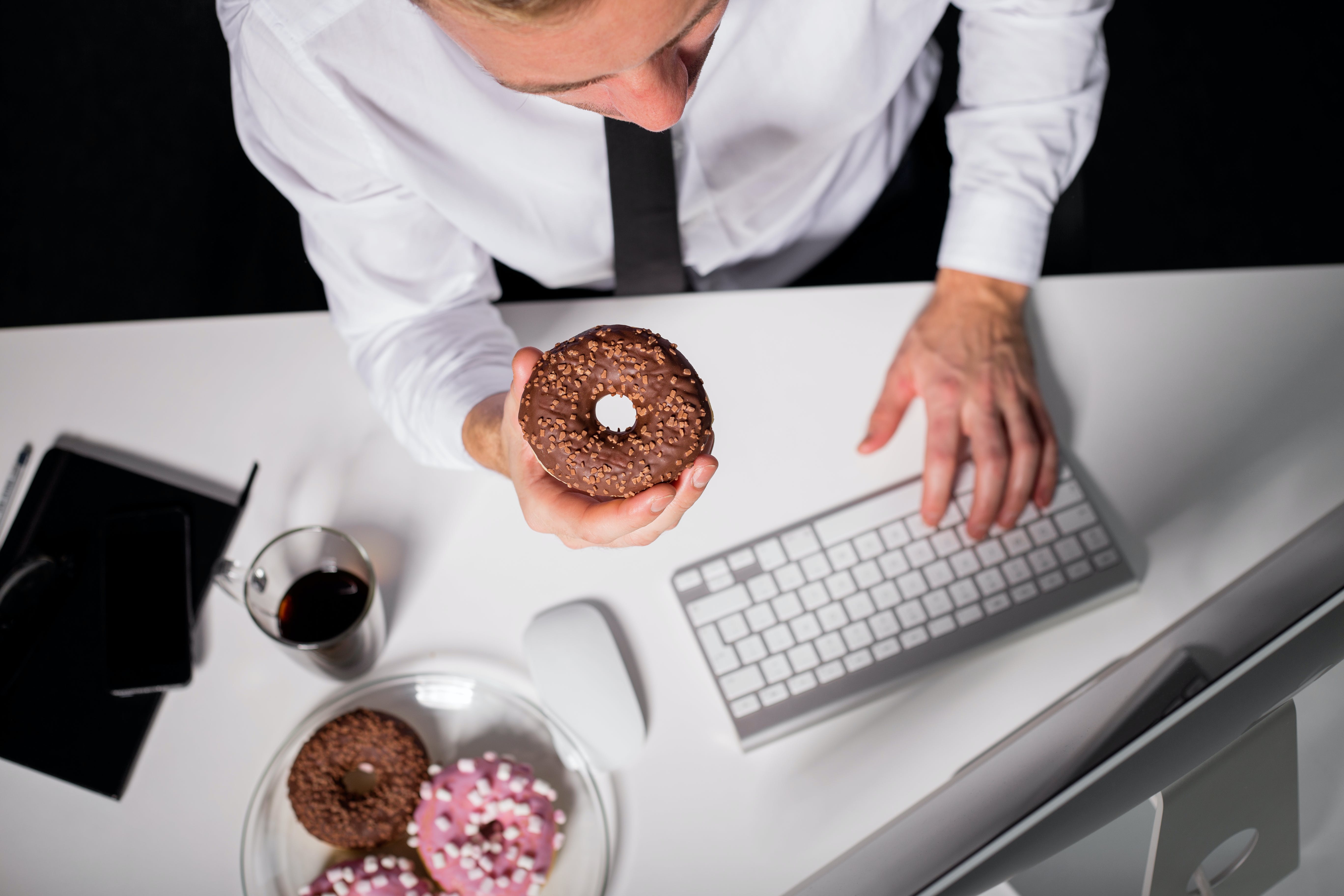Do you find yourself turning to that box of Girl Scout cookies you hid in the freezer or that bag of chips that was “for when company comes over” when stress hits? It turns out that stress eating is very real, and it can have a negative impact on your health.
Stress activates your adrenal glands to release cortisol, which increases your appetite. Research shows that stress also blocks hunger hormones, like ghrelin, that regulate your appetite. If anxiety is cutting into your sleep, your appetite is revved up even further.
Unfortunately, that anxiety-induced hunger can have long-term consequences for your waistline. Researchers found that women who reported being stressed burned fewer calories and less fat and had a higher insulin response after eating a high-fat meal. Published in the journal, Biological Psychiatry, the study concluded that stress-induced changes led women to burn about 100 fewer calories per day.
When you’re under stress, you often feel out of control and overwhelmed, which can definitely leak into your eating habits. It’s not shocking to go after junk food instead of keeping up with your normal healthy habits because you’re worried about the past or the future, rather than what you’re eating in the present.
Stress depletes the cognitive resources you need to remain strong-willed, focused and capable of practicing creative problem-solving. That’s why getting elbow-deep in a pint of ice cream always feels easier than actually coming up with a plan for how to tackle a personal or work-based dilemma.
While it would be better if we crave celery sticks and carrots during crazed moments, there is a biological reason why we don’t. Pizza, french fries, cookies and ice cream are stress-eating staples because these high-carb, high-fat eats increase the brain’s dopamine response, which makes us feel good. So, when you get caught in a stressful situation, you’ll crave the reward of junk food because your brain expects the dopamine reward and knows where to find it.
It’s easy for stress snacking to become an ingrained habit. A few recent studies conclude that one reason we eat high sugar foods is because sugar diminishes stress-induced cortisol responses. So, you ultimately feel better on a sugar high. Over time, your brain may start to rely on these foods to simmer down.
The problem is that anyone who’s been on the emotional eating train knows what it feels like after you eat for emotional reasons. The guilt, frustration and sugar crash hit you like a hangover. As you might expect, there is also research that eating excess “bad for you” foods can make an irritable mood even worse.
If you’re ready to break free from stress eating habits and bring joy back into your eating, here are some tricks to try the next time anxiety strikes.
Think Long-Term Goals
Take a minute to focus on the future, whether that means recalling your weight loss goals or how awesome you want to look on vacation next month before you give in to stress eating. It can help get you out of the cravings so you can make healthier food choices instead of succumbing to the lure of a tasty treat.
Figure Out What the Real Issue Is
We all know food is just a crutch when we’re stressed. Stress eating is not the primary problem, but a symptom of needs that have gone unfulfilled. Ask yourself how you feel or what you need to figure out what’s really getting you stressed.
Get Mindful
There are studies that show that people who try stress reduction techniques, learn to recognize hunger, and pay attention to taste are less likely to stress eat. Next time you’re feeling taxed, look into mindfulness training. You can learn to recognize your feelings, accept the unpleasant ones and focus on your breathing so you can fight the automatic urge to reach for a high fat snack.
Be Kind to Yourself
Self-compassion can decrease stress eating. When you’re kind to yourself, it’s easier to resist the urge to try to disconnect through stress eating. If you do stress eat, promise that you won’t beat yourself up and understand that it happens to everyone sometimes. That can help stop you from eating out of failure and help you make better choices later.
If All Else Fails…
Go ahead and indulge. If you’re going to do it anyway, let yourself slowly and fully enjoy it instead of angrily shoveling food down your throat without paying attention. Sit down, let yourself relax, and taste it. Try to do so with some self-control. Plan on savoring a portion of something rather than devouring the whole batch.
There are many ways to cope with stress, but for many of us, that involves grabbing for that bag of chips or pint of ice cream. It’s essential to address the root cause of your stress, practice mindful stress-relieving techniques and, most importantly, be kind to yourself so you can break free from stress eating habits and focus more on your health and wellbeing.
Nutritional information
Recipe: Creamy Green Strawberry Dream Serving in this recipe:1
- Calories: 236.6
- Total Fat: 3.6 g 5.5%
- Saturated Fat: 0.4 g 1.9%
- Cholesterol: 0 mg 0%
- Sodium: 358.7 mg 14.9%
- Total Carbs: 45.7 g 15.2%
- Dietary Fiber: 9.9 g 39.4%
- Sugar: 22.1 g
- Protein: 8.1 g 16.2%
- Vitamin A: 481.9% Vitamin C: 244.1%
- Calcium: 68.5% Iron: 26.1%
* Percent Daily Values are based on a 2,000 calorie diet. Your daily values may be higher or lower depending on your calorie needs.




























